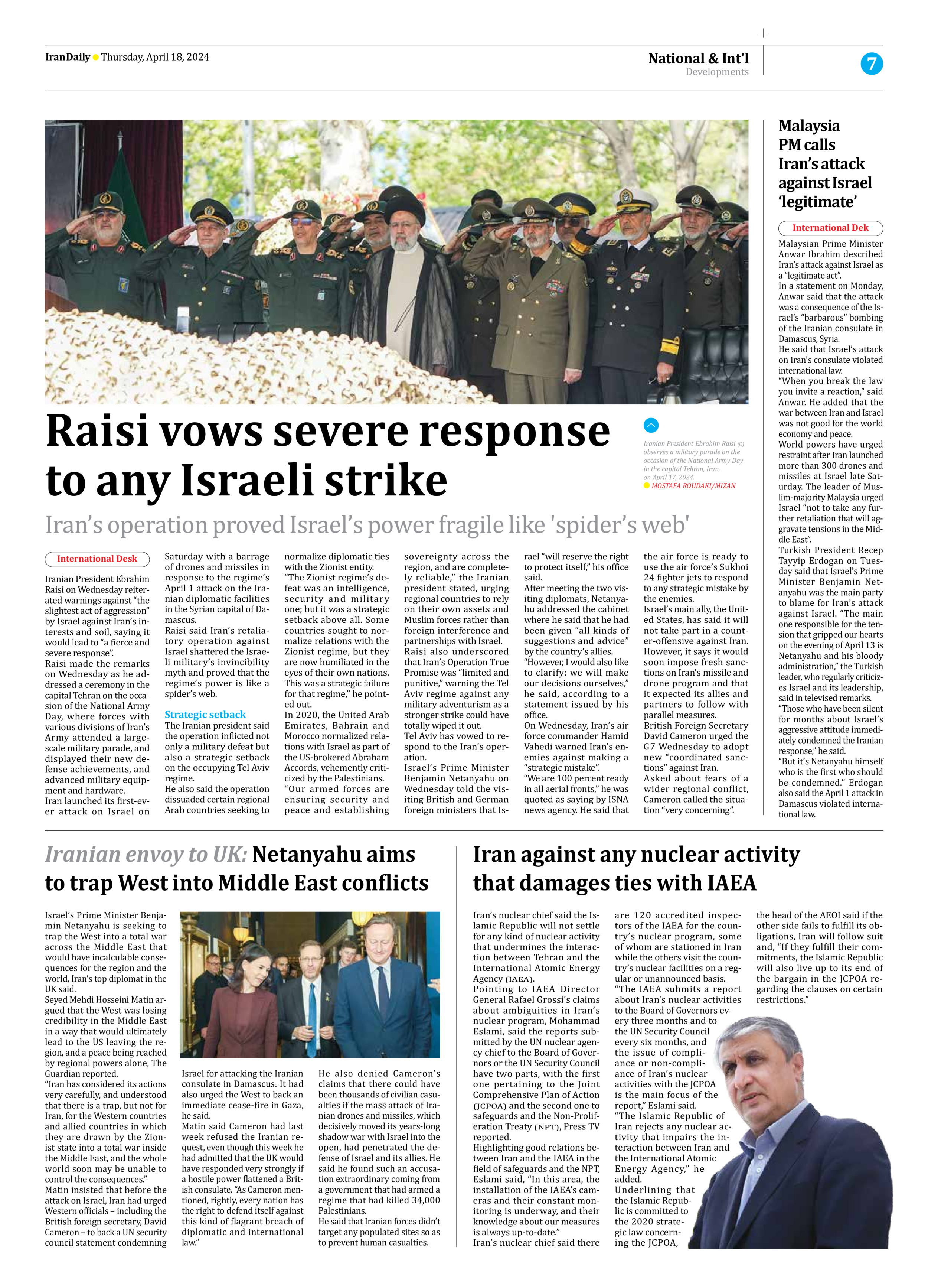
Copy in clipboard...
Iran against any nuclear activity that damages ties with IAEA
Pointing to IAEA Director General Rafael Grossi’s claims about ambiguities in Iran’s nuclear program, Mohammad Eslami, said the reports submitted by the UN nuclear agency chief to the Board of Governors or the UN Security Council have two parts, with the first one pertaining to the Joint Comprehensive Plan of Action (JCPOA) and the second one to safeguards and the Non-Proliferation Treaty (NPT), Press TV reported.
Highlighting good relations between Iran and the IAEA in the field of safeguards and the NPT, Eslami said, “In this area, the installation of the IAEA’s cameras and their constant monitoring is underway, and their knowledge about our measures is always up-to-date.”
Iran’s nuclear chief said there are 120 accredited inspectors of the IAEA for the country’s nuclear program, some of whom are stationed in Iran while the others visit the country’s nuclear facilities on a regular or unannounced basis.
“The IAEA submits a report about Iran’s nuclear activities to the Board of Governors every three months and to the UN Security Council every six months, and the issue of compliance or non-compliance of Iran’s nuclear activities with the JCPOA is the main focus of the report,” Eslami said.
“The Islamic Republic of Iran rejects any nuclear activity that impairs the interaction between Iran and the International Atomic Energy Agency,” he added.
Underlining that the Islamic Republic is committed to the 2020 strategic law concerning the JCPOA, the head of the AEOI said if the other side fails to fulfill its obligations, Iran will follow suit and, “If they fulfill their commitments, the Islamic Republic will also live up to its end of the bargain in the JCPOA regarding the clauses on certain
restrictions.”







